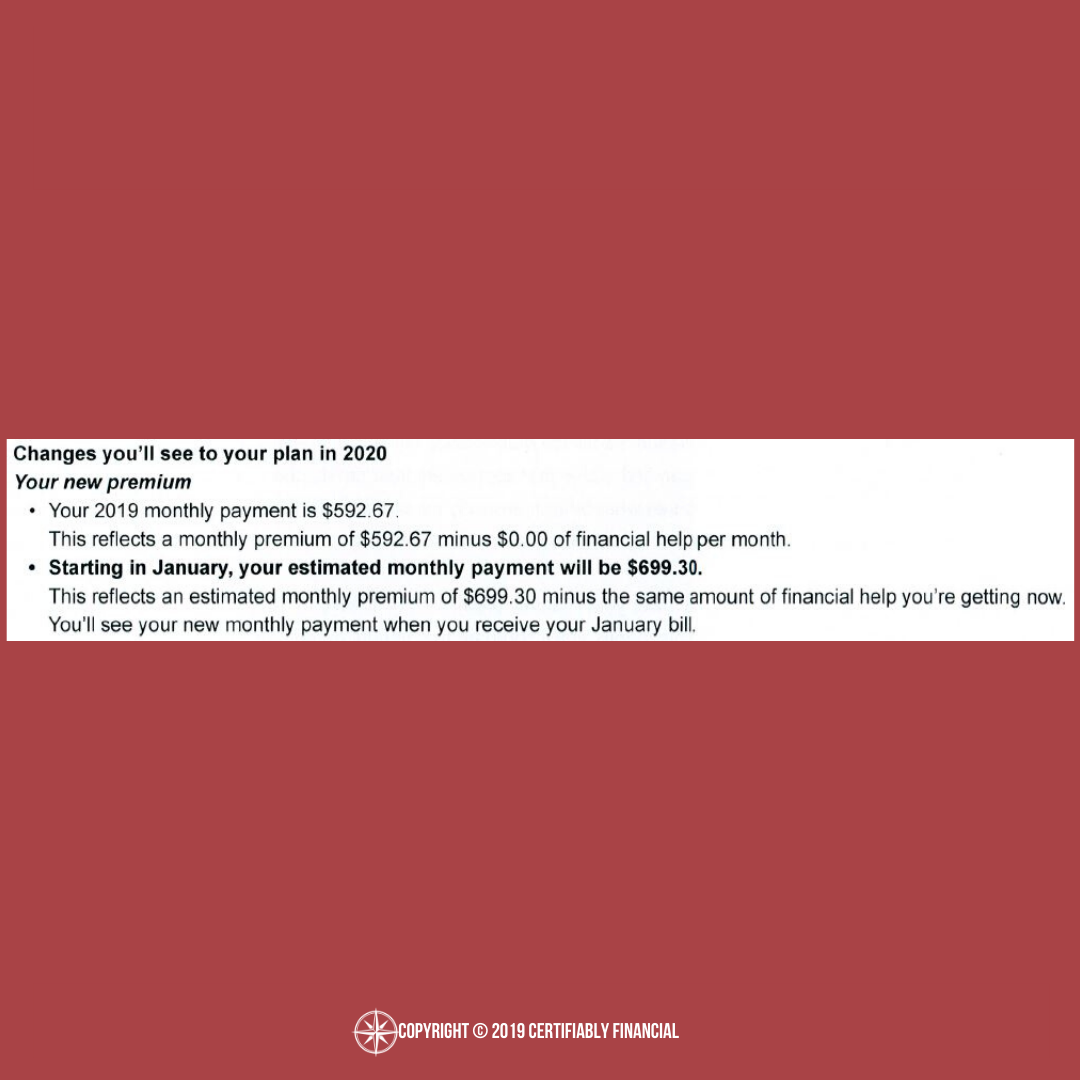As someone who hasn’t used a dollar of health insurance so far in 2019, I’m supposed to pay 18% more for health insurance coverage in 2020.
I’m a little late to this post since the HealthCare.gov Open Enrollment Period for health insurance started November 1 and ends December 15 and I received this notice November 1, but here it goes…
I work for a small business that doesn’t offer health insurance as an employee benefit, so I’ve been on a HealthCare.gov health insurance plan since I turned 26 in 2018. My wife, Amanda, quit her job earlier this year which meant that she lost her employer-provided health insurance coverage and was forced to find an alternative. Once we got married in July, we added her to my policy which more than doubled the monthly premiums from $292.90 for myself to $592.67 for both of us. In 2020, the premium for the same policy is going to be $699.30 per month, which is an 18% increase.
Really, I should take a step back and remember to be thankful for having the opportunity to have health insurance coverage because the US Census Bureau reports that there are tons of people who don’t1. But it still seems to me like there’s something wrong when someone who didn’t do anything but pay for health insurance premiums in 2019 without using any insurance benefits is set to be charged so much more in 2020.
Not a whole lot has changed from this time last year in regards to the health insurance marketplace besides that it’s no longer mandated by the Federal government, so I’m providing links below to a couple of articles that I wrote in 2018 about health insurance as well as some additional reading from other sources that you may want to consider:
Additional Reading
- How to pick a health insurance plan (HealthCare.gov)
- How Healthcare Sharing Programs Compare to Traditional Health Insurance (Kitces.com)
- Figuring Out The “Best” Healthcare Option For “Early” Retirees (Kitces.com)
Do Your Research
No matter what health insurance option you choose, please be sure to do the research and know how much you really could be on the hook for if the worst-case scenario were to happen. Insurance is meant to protect you against catastrophes, but not all “health insurance” options do so very well, and it can be extremely difficult to figure this out even if you read through the fine print and legal jargon.
In addition to the things that you always think about when evaluating your health insurance options (like the premiums), make sure that you know what the plan network looks like, what the deductible and coinsurance look like, and what your max out-of-pocket cost is.
The cheapest premium isn’t always the way to go and could actually end up leaving you in a worse financial situation than paying for a policy that has much higher premiums and much better coverage.
References
1 Health Insurance Coverage in the United States: 2018 (United States Census Bureau)

